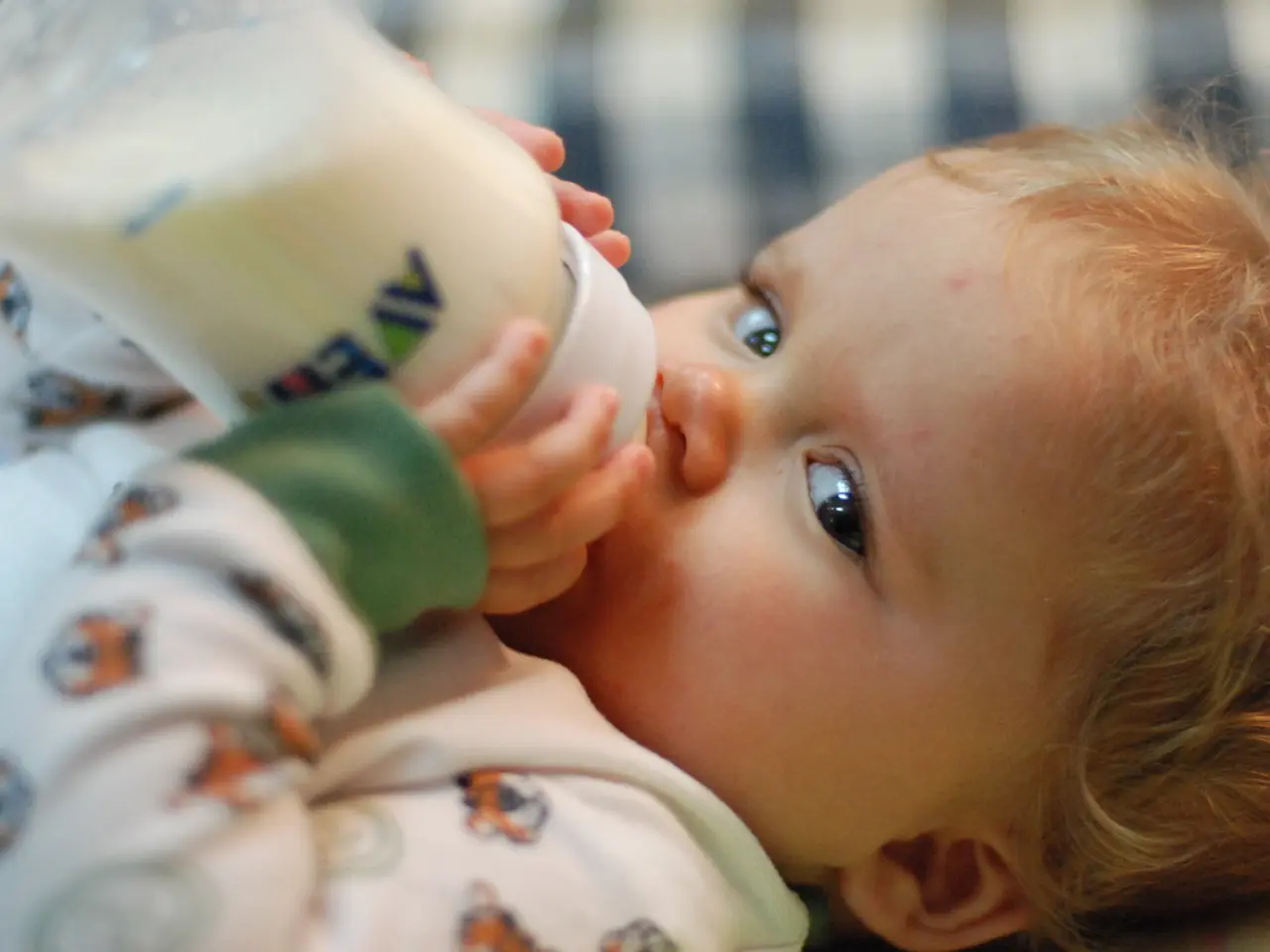Possibilities Explored: Can a Woman Conceive While Nursing Her Baby?
Breastfeeding is a natural and beneficial practice for both mother and baby, but it also plays a significant role in family planning. Here's what you need to know about breastfeeding, fertility, and family planning.
Firstly, it's important to note that some drugs used in fertility treatments are safe to use while breastfeeding, while others could be dangerous to the baby. If you're considering fertility treatments while breastfeeding, it's crucial to discuss this with your healthcare provider.
Exclusive breastfeeding is a temporary form of birth control known as the lactational amenorrhea method (LAM). To effectively use LAM, practice exclusive nursing, nurse on demand, avoid using pacifiers, and ensure your period (including spotting) hasn't returned and your baby is under 6 months old. Uterine contractions may occur during breastfeeding due to the release of oxytocin, and it's essential to discuss any concerns about preterm labor with your OB or midwife.
Gradually introducing solids to a baby over 6 months old may help delay ovulation. However, it's important to remember that research is needed to confirm if reducing suckling time gradually can help delay ovulation.
If aiming to grow the family while breastfeeding, reach out to your healthcare provider to discuss your options. Women who return to work and express their milk to exclusively feed their babies breast milk are more likely to get pregnant than non-working moms using LAM. On the other hand, introducing formula, solid foods, or returning to work can increase the chances of ovulation and getting pregnant while breastfeeding.
Breastfeeding can continue during pregnancy, but it's important to consume extra calories to support the baby and developing fetus. In the second trimester, add an extra 350 calories, and in the third, add 450 extra calories. If the baby is eating other foods, aim for an additional 500 calories per day, and if the baby is under 6 months old, aim for an extra 650 calories.
As you move further away from the day your baby was born, your chances of getting pregnant increase, even while breastfeeding. Some women may ovulate even before they get their first postpartum period, while others may begin menstruating before they begin ovulating.
It's crucial to discuss all concerns with your healthcare provider regarding fertility treatments and breastfeeding. Oxytocin, a hormone released during breastfeeding, helps prevent ovulation by sending signals to the brain that suppress the main hormone that stimulates ovulation.
Lastly, it's advisable to learn about other methods of birth control if avoiding pregnancy is a concern. While exclusive breastfeeding is a temporary form of birth control, it's not a guaranteed method, and it's always best to have a backup plan. Out of 100 women who correctly use LAM during the first 6 months following childbirth, only 1 to 2 may become pregnant.
In conclusion, breastfeeding plays a crucial role in family planning, and it's essential to understand the implications of breastfeeding on fertility. Always consult with your healthcare provider to discuss your options and concerns.
Read also:
- Comprehensive Overview of Addressing Traumatic Brain Injuries (TBIs)
- Enhanced Health Services Provisioned by San Diego Academic Health Partnership Continues During COVID-19 and Beyond
- Vaccination drive targeting infants under 6 months old against bronchiolitis in the region of Andalucia
- Biopsy Basics: Objectives, Varieties, and Potential Hazards - Healthline Illuminated






